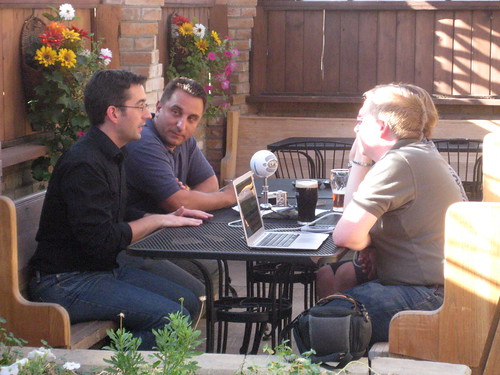Flowgram is a nice tool that I think many educators would find useful. Flowgram allows you to take webpages, photos, or PowerPoint presentations, put them into a linear sequence and add audio narration and notes. The result is somewhat like a screencast. It is free, does not require a download, and Flowgrams are embeddable in your blog, or can be shared in other ways (e.g., Facebook, Delicious, etc.)
Abhay Parekh, founder of the company, created a Flowgram to demonstrate the capabilities of the tool. Click on the image below:
Flowgram may be useful to yourself, or students. I can think of a number of educational applications.



